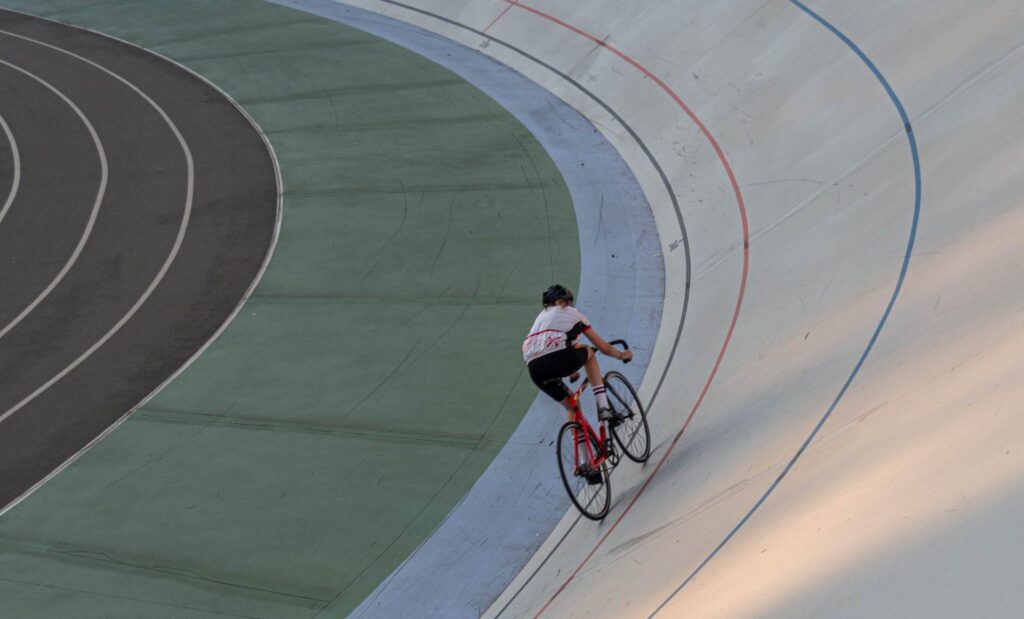As wonderful as cycling is for your fitness, for those who have ridden lots or use it as their only form of exercise will know, it is quite one dimensional. In other words, the strength and fitness benefits are limited to the bike. That’s where Cross training comes in as an aid to the development of cyclists as versatile athletes. While cross-training is commonly associated with gym exercises, it encompasses any physical activity that can substitute cycling. Whether it’s lifting weights or walking your dog, any exercise that elevates your aerobic fitness is beneficial. The benefits of cross-training extend beyond just general fitness. By incorporating various training methods, you can strengthen your core, develop endurance and power, and prevent monotony from setting in, making your favourite sport more enjoyable.
Start small
Embarking on a new sport or discipline, regardless of your cycling proficiency, can bring about distinct and favourable outcomes for your body. Gradually introducing these exercises while prioritising proper form and comprehension of muscle activation can supplement your cycling training, fortify your physique, and safeguard against minor injuries. It’s crucial to avoid pushing yourself too hard too quickly, especially if you’re venturing into unfamiliar territory. Starting small and gradually progressing will yield optimal results. Seeking guidance from a personal trainer or cycling coach can help manage your workload.
Injury reduction
Once you have acclimatised to cross-training, you may notice a decrease in bothersome injuries. The variance in physical movements, such as running or swimming, aids in correcting muscle imbalances. However, it’s important to maintain a balance and not overexert yourself, risking stress-related injuries.
Developing new skills through varying disciplines
Exploring different areas of cycling can significantly enhance your skills beyond road cycling. One such area is cyclocross, a discipline that has produced some of the most prominent names in professional cycling. From Wout van Aert to Julian Alaphilippe, cyclocross has paved the way for outstanding road riders.
What makes cyclocross an effective training ground for road cycling? Apart from the challenge of weather and mud, the discipline sharpens two crucial skills: power and handling. The need to maintain momentum amid speed changes in a typical ‘cross course requires exceptional power. Although the race may seem short, the numerous mini-sprints demand high-intensity efforts that develop explosive power.
Moreover, the challenging terrain and tight courses cultivate exceptional handling. Cyclists become adept at understanding their bikes, adjusting tire pressures, and assessing their limits. With improved handling, the likes of Tom Pidcock and Peter Sagan make downhill descents look effortless. Cyclocross, therefore, not only prepares riders for any unforeseeable circumstances but also shapes them into more powerful and skilled cyclists.

Supplementary sports
Incorporating different sports into your fitness routine can significantly benefit your cycling performance. Running and hiking, for instance, not only build stronger bones but also enhance cardiovascular fitness. If the weather is properly miserable and exercise options are limited, a good run or long walk can be a great alternative to a bike ride. Aerobic strength is crucial in tackling the most challenging cycling terrains, including big climbs and tricky off-road tracks.
Moreover, swimming is a complete body workout that engages every muscle group, making it an ideal exercise to complement cycling. It boosts strength, stamina, and lung capacity, and recent studies show that regular swimming can reduce the risk of death from heart disease by 41%.
Pilates and Yoga
Regular cycling without stretching can cause tightness in the glutes, quads, and hamstrings, which can increase the risk of injury or soreness. This risk is heightened by prolonged periods of sitting indoors, a common occurrence nowadays.
Yoga and Pilates can significantly reduce this risk by enhancing strength, flexibility, focus, and wellbeing. In addition to controlled stretching, yoga emphasizes breathing techniques that can be utilised during a ride or race scenario. Pilates, on the other hand, is more intense and focuses mainly on core and posture, both of which are crucial for comfort on the bicycle. It also improves flexibility in the pelvic, hip, and back muscles, which helps prevent injuries and improves on-bike form. A rider who is comfortable, fit, and well-stretched should perform better than one who isn’t!
Check out our blog which includes four free Pilates workouts specifically designed for cyclists

Strength training
To prevent injuries and improve long-term ride benefits, dedicating time to strength training is highly effective. Despite common concerns about bulking up, it is possible to perform strength training in a way that avoids this. Cycling is a low-impact sport, which can result in low bone density and increased risk of injuries. However, strength training can help combat this issue and also improve a rider’s ability to maintain form in the saddle for longer periods, ultimately leading to faster speeds.
Core strength is especially important for cyclists and exercises such as planks, lunges, leg-lifts, and burpees can all be effective. For more detailed information on home exercises that can improve strength, check out British Triathlons series of free guides
Whatever you end up trying, the idea of this article is to inspire you to maximise your comfort and enjoyment on and off the bike. More importantly, enhance your overall strength, fitness and flexibility for future well being and injury prevention.




